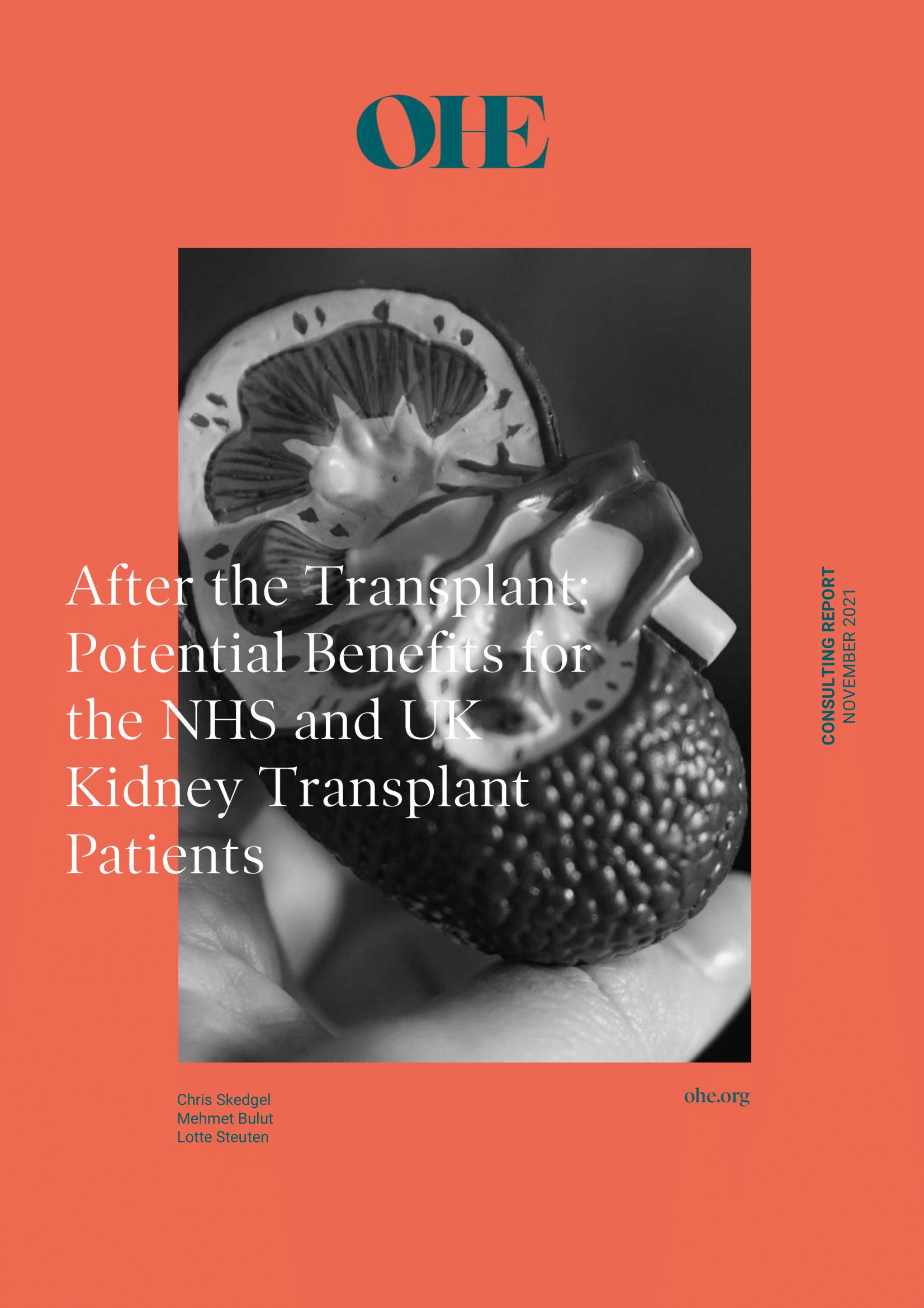Sign up to our newsletter Subscribe
Challenges and Solutions for Budget Impact Analysis of Gene Therapies

Around 10% of people in the United Kingdom (UK) have chronic kidney disease (CKD) according to Kidney Care UK. While CKD can be managed through diet and lifestyle changes in most patients, around 10% of them will suffer renal failure, where their kidneys no longer function well enough to support a normal, healthy life. Untreated, renal failure will ultimately lead to death.
Around 10% of people in the United Kingdom (UK) have chronic kidney disease (CKD) according to Kidney Care UK. While CKD can be managed through diet and lifestyle changes in most patients, around 10% of them will suffer renal failure, where their kidneys no longer function well enough to support a normal, healthy life. Untreated, renal failure will ultimately lead to death.
Kidney transplantation offers the best hope for patients with renal failure but there is a substantial gap between the number of patients in need of a transplant and the number that can be performed each year. Much of this gap is the result of a shortage of donated organs relative to need, particularly amongst people from ethnic minority backgrounds.
Up to 5,000 people in the UK require a kidney transplant due to renal failure each year, but only about 3,000 transplants can be performed each year and around 250 people die each year while waiting for a transplant. This gap between people needing a transplant and the number of organs available has most likely become worse as a result of the COVID-19 pandemic.
Legislative changes such as ‘presumed consent’, which requires individuals to ‘opt out’ of automatic organ donation, are seeking to increase the number of organs donated and transplanted, but it will be equally important to continue to find ways to make better use of the organs currently available. This includes improving post-transplant care to increase the likelihood of a successful transplant and extending the duration of graft survival, with the ultimate goal of “one transplant for life”.
To estimate the potential benefits of improved kidney transplant care for patients, the NHS, and wider society, OHE, working on behalf of Novartis, developed an economic model that considers different aspects of transplant care. This model included information on NHS costs before, during, and after transplant, as well as the probability, or incidence, of short- and long-term complications associated with transplant and the costs of treating those complications. From the patient’s perspective, it includes information on the likelihood of being able to engage in paid employment or other productive activities whilst on the waitlist or post-transplant and an estimate of the value of that time. Finally, it includes estimates of the average age of transplant recipients and the expected length of graft survival with the current standard of care to understand how long these different costs and quality-of-life benefits will last.
The model is a microsimulation, meaning that it simulates a series of individual patient journeys to represent individual patients rather than representing the ‘average’ experience of a cohort of identical patients as in state-transition or “Markov” models. A microsimulation is more complicated than a state transition model, but the variety of outcomes and time-to-failures that are possible after each transplant means a more complicated microsimulation approach was necessary to produce credible estimates of the expected outcomes.
As detailed in the report, our estimates of the ‘best case’ potential lifetime gains for a UK cohort of 3,190 hypothetical renal failure patients suggest that optimal post-transplant care could avoid more than 1,100 repeat transplants; avoid more than 100 weeks of dialysis per patient; reduce the quality-of-life burden by 20%; allow more than 3,000 additional patients to be transplanted in the short-term; reduce societal costs, including the value of lost productivity time, by almost £1.14 billion; and allow the NHS to reallocate £577 million to other healthcare programmes. This represents a societal saving of almost £85 million per year over the average lifetime of the cohort (13.5 years).
The model suggests that improving the ability of patients to make valuable use of their time in paid, voluntary, or leisure activities has the greatest impact on cost savings, followed by reduced waiting times and an overall increase in the supply of organs. Given the high incidence of depression and anxiety amongst transplant patients – a 2013 systematic review suggested that up to 1 in 4 kidney transplant patients experience depression – we also find that post-transplant depression is associated with avoidable costs to the NHS of £8.4 million and a substantial loss in patient quality-of-life, accounting for almost half of the total burden of all long-term serious complications following transplant.
Based on these findings, our report recommends that the following objectives should be key policy priorities:
NHS initiatives and legislative changes are seeking to increase the number of organs donated and transplanted. Alongside these initiatives, we welcome the renewed focus by health systems on finding ways to make better use of the organs currently available, particularly through improved post-transplant care that can increase the likelihood of a successful transplant and extend the duration of graft survival, ideally to one transplant for life.
This Consulting Report was commissioned and funded by Novartis Pharmaceuticals. Novartis Pharmaceuticals were consulted throughout the development of the report and this post and had editorial input to the final draft. Novartis had no input into the structure or the parameters of the model on which this report is based.
After the Transplant: Potential Benefits for the NHS and UK Kidney Transplant Patients
